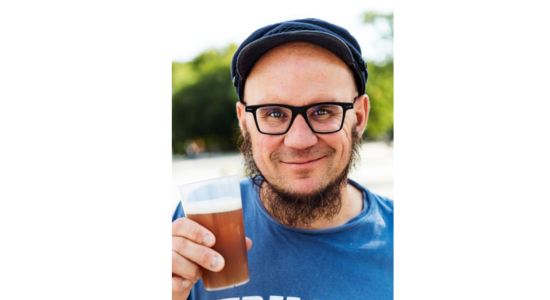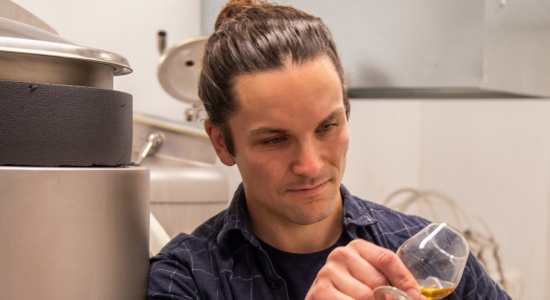Course director, Master Brewer, Dept. of Food Science, University of Copenhagen
Craft brewer course - learn how microbrewers brew beer
Since the beginning of the century, there has been a bloom in the number and quality of micro brewed craft beer. The microbreweries have introduced many different beer styles and even invented new styles. On this course we will have a look into the basic science and technology of brewing on a small scale. The course is intended for those, who are dreaming of becoming a craft brewer, starting their own microbrewery or maybe just want to get some more knowledge about brewing beer.
Many craft breweries have been started by home brewers, who wanted to brew beers, which previously have been unknown to many consumers. The craft brewers have made a true revolution with their entrepreneurial way of inventing more interesting and flavourful beers. It is important to understand the science and technology behind the processes of beer brewing in order to fully appreciate and explore the possibilities and diversities in the world of beers.
This course contains theoretical as well as practical aspects of brewing: lectures, practical and theoretical exercises, beer tasting, visit to a craft brewery and practical brewing in the pilot plant facility at the University.
You can read an article about the course here - please note that the article is in Danish.
I really enjoyed the course - a good mix of topics that cover the whole brewing industry
Great teachers, very welcoming
Course director and guest speakers - Master Brewers
Course details - Brewing in theory and practice
Key benefits – become a brewer
After the course you will be able to:
- Select appropriate raw materials in beer brewing
- Apply the basic science and technology in the brewing process
- Differentiate between different beer styles
- Create a recipe for a beer
Apply the knowledge obtained in practice by making a brew on a small-scale brewing plant
Course content – the complete process of brewing
We go through the complete process from the raw materials barley, malt, hops, water and yeast into the finished beer – filtered or unfiltered. You will develop your own recipe and make a brew on the pilot brewing plant at the University. Subjects like the process of brewing, fermentation, maturation, dry hopping as well as beer styles tasting and sensory evaluation will be covered by specialists, who know the craft brewer profession. We will visit a craft brewery to support the theory.
The teaching is conducted in English.
Participant profile – brewers and beer enthusiasts from all over the world
The course is developed for craft brewers, homebrewers and beer enthusiasts, who are passionate about beer and brewing and want to develop their skills. The participants are recommended to have at least 2 months of practical brewing experience in a micro or craft brewery prior to the course.
The course forms the first part of the education to become Diploma Craft Brewer granted by the Scandinavian School of Brewing. The second course week is 26-30 January 2026. In between the two parts the participants will make a project at a microbrewery and write a report, that has to be approved by the Scandinavian School of Brewing. The second part concludes with a presentation and an examination. Please note that the price is only for the first part and that it is possible to sign-up for only the first part.
Interview with Kim. L. Johansen, Master Brewer
A Journey from Chemical Engineer to Master Brewer
In this article, we delve into the fascinating professional background of Kim Johansen, a chemical engineer with roots tracing back to the Danish Technical University. Kim's journey has been marked by a career spanning various engineering companies, in the private sector. His educational foundation as a chemical engineer laid the groundwork for a diverse and dynamic career that eventually led him to the world of micro brewing. Over the years, he dedicated himself to teaching at the Scandinavian School of Brewing in a collaboration with University of Copenhagen. We sat down with Kim for a conversation about his professional career, the Craft Brewer Course, and, most importantly, why micro brewing holds relevance in today's brewing industry.
Read the full interview here: Interview with the course director
Overall I have learned a lot. High quality teachers and subjects
Diploma Craft Brewer education
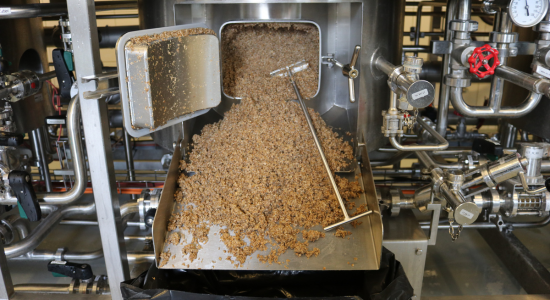
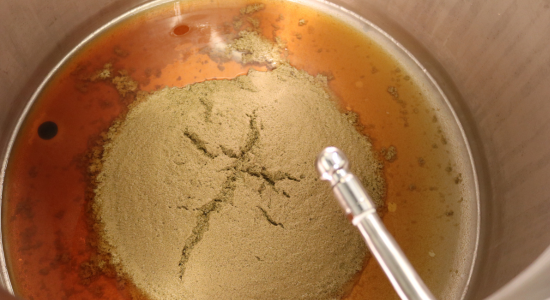
Craft Brewer Course 2
In addition to the Craft Brewer Course at Copenhagen Summer University in August, you can take a second course week in January-February the following year – Craft Brewer Course II. Like the first week, the second week is held at Department of Food Science at the University of Copenhagen. In between the weeks the participant make a project at their brewery and write a report.
The second course week will be offered next time 26-30 January 2026. The second week is finished by an exam and the participants will present their projects for each other. If you pass the exam and your project report is approved, you will get a diploma as Diploma Craft Brewer from the Scandinavian School of Brewing.
This education is highly recognised in the Nordic countries and many brewers in other countries have also taken the education. We highly recommend to get 2 months of practical experience from a microbrewery before attending the two course weeks or in between the two weeks.
More information about the second week and sign up by mail to Master Brewer Kim L. Johansen – kim.lou.johansen@food.ku.dk.
Meet our modern Pilot Brewery
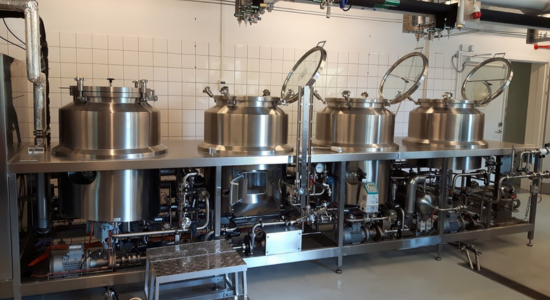
Small version of a large brewery
At the Department of Food Science we have a modern pilot brewery installed in 2019 by the German company Kaspar Schulz. Since the purpose is to educate brewing students, our pilot brewery is not a microbrewery, but a small version of a large brewery. The brewhouse can produce 50-100 litre per brew and consist of a mash kettle, a lauter tun, a wort kettle with external heater and hop dosing vessel, a whirlpool, a wort cooler and inline aeration.
We have 8 fermentation tanks each with a gross volume of 50 litres. The tanks are cooled by ice water in cooling jackets and mounted in insulated compartments. We have the possibility of filling the beer into kegs and into glass bottles with crown cork. Our brewing students at the University learn how to operate the brewery and how to design recipes for the beer, we are brewing.
Practical information
Location
University of Copenhagen
University of Copenhagen, Frederiksberg Campus
Bülowsvej 21
DK-1870 Frederiksberg
Denmark
Time and Date
The course will be held in week 34, 2025.
Dates: 18-22 August 2025, each day from 08:15 to 16:30.
Contact
Thomas Stengade Sønderskov
Programme Director
lifelonglearning@adm.ku.dk
Really good balance between depth, scope and time available (translation from Danish)
”Very clear instruction and a really good teacher. Clearly has expert knowledge”
Good mix of theory and practice. Great with lecturers that shares practical experiences
A super good course (translated from Danish)


